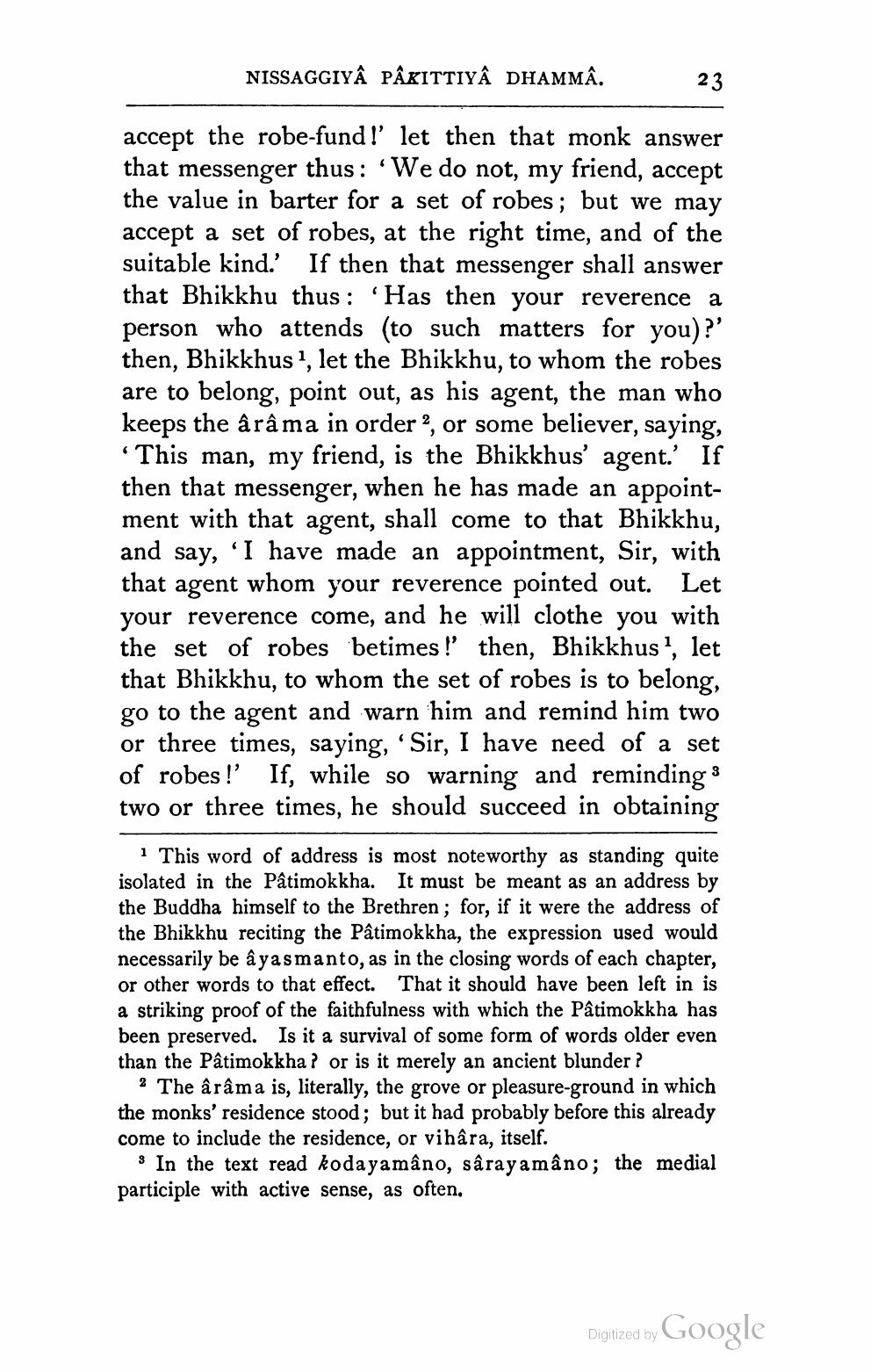________________
NISSAGGIYÂ PÂKITTIYA DHAMMÂ.
23
accept the robe-fund !' let then that monk answer that messenger thus: We do not, my friend, accept the value in barter for a set of robes; but we may accept a set of robes, at the right time, and of the suitable kind. If then that messenger shall answer that Bhikkhu thus : 'Has then your reverence a person who attends (to such matters for you)?' then, Bhikkhus 1, let the Bhikkhu, to whom the robes are to belong, point out, as his agent, the man who keeps the ârâma in order ?, or some believer, saying, *This man, my friend, is the Bhikkhus' agent.' If then that messenger, when he has made an appointment with that agent, shall come to that Bhikkhu, and say, 'I have made an appointment, Sir, with that agent whom your reverence pointed out. Let your reverence come, and he will clothe you with the set of robes betimes !' then, Bhikkhus?, let that Bhikkhu, to whom the set of robes is to belong, go to the agent and warn him and remind him two or three times, saying, 'Sir, I have need of a set of robes !' If, while so warning and reminding 3 two or three times, he should succeed in obtaining
1 This word of address is most noteworthy as standing quite isolated in the Pâtimokkha. It must be meant as an address by the Buddha himself to the Brethren; for, if it were the address of the Bhikkhu reciting the Pâtimokkha, the expression used would necessarily be â yasmanto, as in the closing words of each chapter, or other words to that effect. That it should have been left in is a striking proof of the faithfulness with which the Pâtimokkha has been preserved. Is it a survival of some form of words older even than the Pâtimokkha? or is it merely an ancient blunder?
2 The ârâma is, literally, the grove or pleasure-ground in which the monks' residence stood; but it had probably before this already come to include the residence, or vihâra, itself.
s In the text read kodayamâno, sârayamâno; the medial participle with active sense, as often.
Digitized by Google




